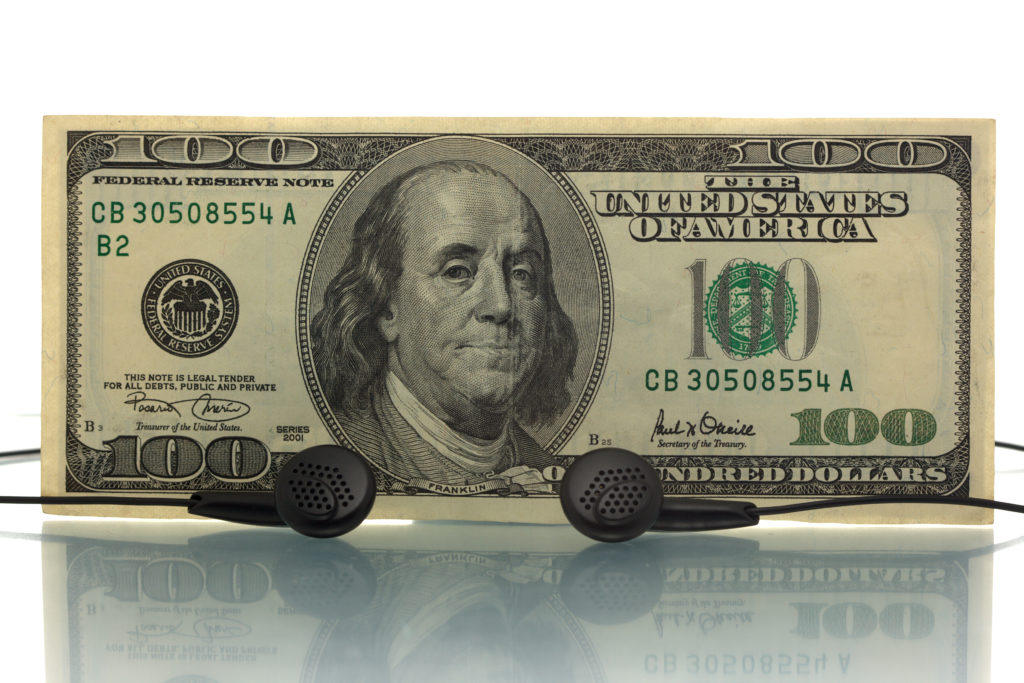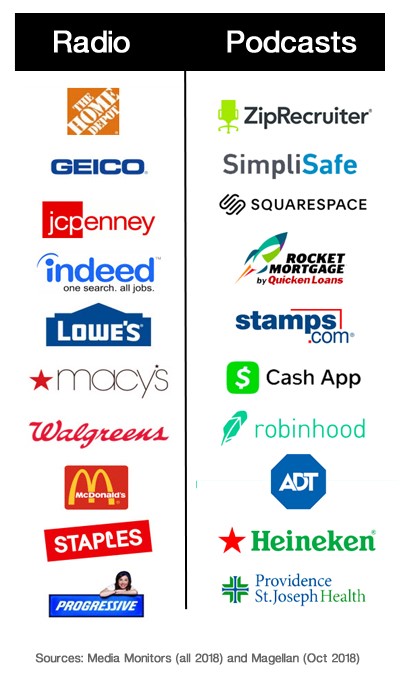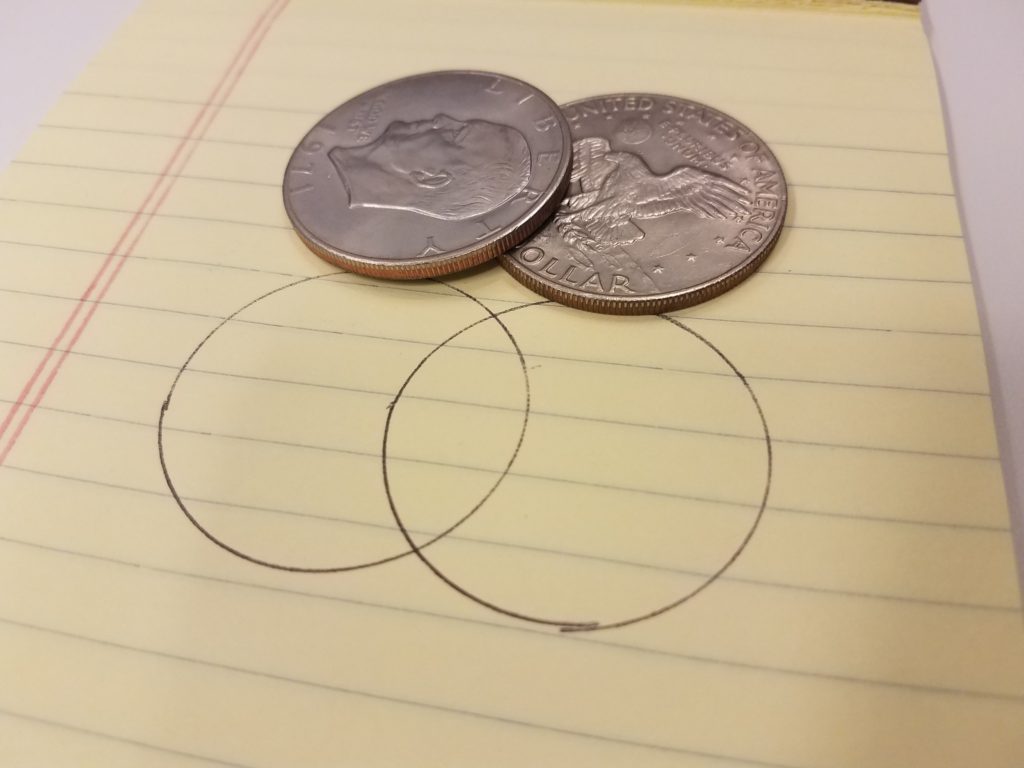
We’ve been too busy here in January to make an official announcement, but I can tell you that Jacobs Media will be back in force at the Podcast Movement conference this summer in Orlando.
On the heels of last year’s super-successful event that drew hundreds of radio executives and podcasters to Philadelphia, we will now be producing three days of content for our “Broadcasters Meet Podcasters” track.
We believe in podcasting’s present – and future – and we also see a synergy between the radio and podcasting industries. After all, broadcasters bring a lot to the table – audio production experience, sales infrastructure, marketing ability, strong local audiences, and the ability to get the word out. Podcasters have their own special traits, in the form of commitment, energy, and creativity. Many are bootstrappers, excited about the audio space, and eager to make their marks.
So, why the disconnect? And where are the key differences that define each platform, setting them apart from one another?
Money, moolah, dough, scratch, revenue, bread, bucks. Well, you get the picture. And it’s a point of true divergence.
The podcasting industry is estimated to generate $400 million in 2019. That represents steady and impressive growth these last few years.
Conversely, broadcast radio in this country rakes in roughly $17 billion.
And in spite of its checkered efforts to bring in digital dollars, radio successfully generated $800 million in new media money last year – twice that of all podcasting revenue.
Another fork in the road revolves around where these ad and sponsor dollars come from. And in that regard, broadcasters and podcasters are oceans apart.
Futurologist James Cridland wisely made that distinction last week (covered by RAIN), and it is one that broadcasters – at the very least – should be factoring into their podcasting calculus.
While broadcasters and podcasters are still trying to wrap their heads around the commonalities and distinctions that mark their respective media, advertisers sure know the difference.
Here are the top 10 advertisers for radio broadcasters and podcasters:

Like night and day. A Venn diagram with nothing in the middle.
That’s because the lion’s share of radio revenue comes from “windshield businesses” – McDonald’s, Home Depot, Lowe’s, Walgreens. Conversely, most of podcasting’s big spenders are companies that are more virtual – ZipRecruitor, Robinhood, Stamps.com, Squarespace.
Not a single top 10 advertiser on either radio or podcasting’s hit list appears on the other. And yet, Heineken stands out as the only beer – or beverage – on either list. Radio seems to have an insurance lock with both Geico and Progressive, while podcasting has mortgages covered, thanks to Rocket Mortgage (Quicken).
And for whatever the reason, home security appears to be the province of podcasting. Note that ADT and SimpliSafe are both fans of podcasts. Somehow, Indeed ends up on the radio side of this valuable ledger, while ZipRecruitor favors podcasting. They’re in the same businesses, but employ very different strategies in reaching customers and building their brands.
I long ago gave up on tring to wrap my head around how agencies and their buyers set their advertising decisions. There always seemed to be a sort of randomness to the decision-making process. Or even voodoo.
But for two audio media with so many apparent similarities, you have to ask yourself what marketers know that we don’t. Or what they’re thinking.  Clearly, there are demographic and psychographic differences betweeen those who are primarily radio listenerss and those who favor podcasting. We know commercial radio listeners tend to be more blue collar than their public radio counterparts – who are far more likely to be podcasting devotees.
Clearly, there are demographic and psychographic differences betweeen those who are primarily radio listenerss and those who favor podcasting. We know commercial radio listeners tend to be more blue collar than their public radio counterparts – who are far more likely to be podcasting devotees.
That still doesn’t explain the odd parallel universes that define monetization models for radio broadcasters and podcasters. And it suggests the traditional notion of “radio dollars” – competing against other radio stations in town for ad budgets from the same old brands – isn’t proving to be a growth strategy for radio.
And as sales reps cut out ads from the local newspaper or watch their hometown TV stations to prospect new business, how many are looking in these other places for dollars?
Podcasters may never come close to matching the train car loads of dollars generated by radio stations and radio networks. But they may open the doors to other advertisers and revenue models that elude broadcasters.
You can bet this will be a topic of conversation at this summer’s Podcast Movement conference.
And maybe radio broadcasters will learn a thing or two from those scrappy podcastesrs.
Thanks again to James Cridland for consistently telling us about the future. Subscribe to his podnews briefings here.
Information and registration for Podcast Movement is here.
- What To Do If Your Radio Station Goes Through A Midlife Crisis - April 25, 2025
- A 2020 Lesson?It Could All Be Gone In A Flash - April 24, 2025
- How AI Can Give Radio Personalities More…PERSONALITY - April 23, 2025




Connection & Presentation. Audio delivery is ever powerful. Innovative Content Communicates. Make it matter with value through whatever gets heard.
Appreciate it, Clark.
Who are the podcasters that are getting these advertisers? I’m assuming it’s podcasters affiliated with large companies rather than the myriad “homemade” podcasters (for lack of a better word). Is there any monetizing for these people or is it just a hobby (doing it for the love of it)?
Tina, the stats show that a relatively small number of podcasters are making an outsized share of the profits. Kind of like the rest of the economy. Thanks for checking in.
Thank you for this article Fred. It is another incredible conversation starter and actually further convinces me that my Podcast company and clients are in the right place at the right time.As a former Corporate Broadcast Programming and Creative Director and a radio content owner who still deals with radio
There are several comparable industry/ financial inverse facts that should give us “ scrappy podcasters” motivation to attack the radio station revenue pie. Podcasting is a growth industry
poised to increase revenue. I have access to radio stations info that shows
revenue in many markets has severely plummeted. This is reflected in what radio stations are paying talent. I have friends who have left radio and are making three times the money they were being paid as full time podcasters and online marketers.
A very reputable broadcast research firm whom I have paid thousands of dollars to when I was in radio has shown a recent study that illustrates the undeniable irrelevancy of radio in key demos.The ad buyers are loving the podcasting market and understand the targeted passionate wealthy audiences that podcasters create. Thus disparity is a great encouragement for the podcast community and I appreciate this motivational
post. As usual , you are spot on!
Thanks again!
Ed, thanks for the comment and your thoughts. This is a puzzle that both broadcasters & podcasters should solve. Appreciate you being part of the conversation.